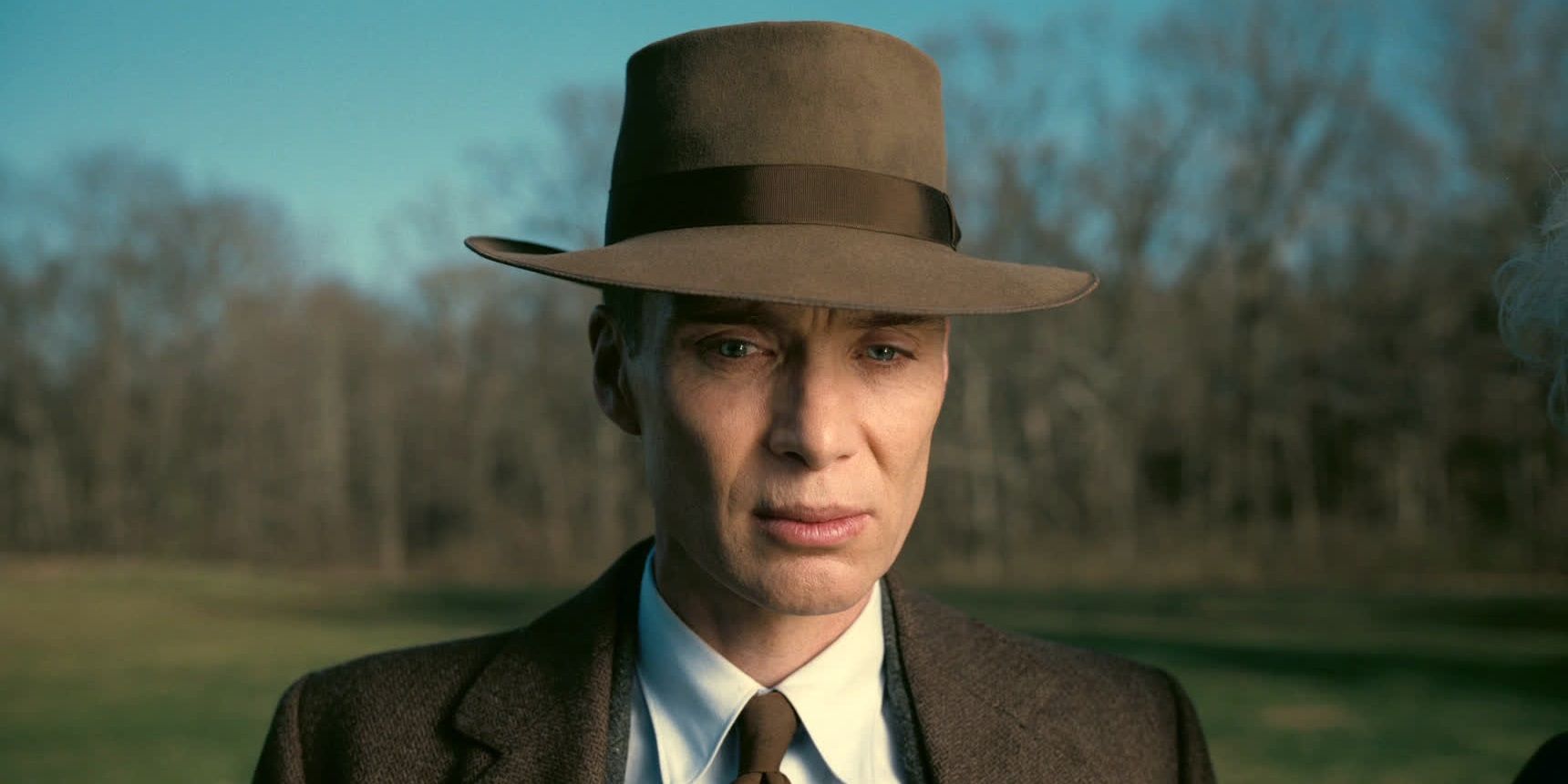
The Dark Revelation: Unveiling Oppenheimer's Powerful Words 'Now I am Become Death, the Destroyer of Worlds'

Exploring the origins and meaning of Oppenheimer's iconic quote, 'Now I am Become Death, the Destroyer of Worlds,' and uncovering Christopher Nolan's motive behind incorporating it into his film
This article contains spoilers for Oppenheimer. Christopher Nolan's latest film, Oppenheimer, has achieved remarkable success, providing a thought-provoking exploration of the life of J. Robert Oppenheimer, widely recognized as the 'father of the atomic bomb'. The portrayal of Oppenheimer by Cillian Murphy has garnered acclaim for its captivating depiction, showcasing the physicist's profound emotional depth.
Among the movie's most impactful moments is when Murphy delivers the iconic line, "Now I am become death, the destroyer of worlds." Nolan emphasizes the significance of this quote by featuring it twice in the film. Over the years, this infamous quote has become synonymous with Oppenheimer, but its origins and meaning warrant examination.
Where did Oppenheimer's quote originate from?
The quote is from the Bhagavad Gita, a Hindu scripture consisting of 700 verses. Oppenheimer, who had a deep interest in Hindu philosophy, was particularly fascinated by the Bhagavad Gita. In the 1930s, he began studying Sanskrit, which is highlighted in the movie.
In a memorable scene, Jean Tatlock, portrayed by Florence Pugh, notices the Bhagavad Gita on Oppenheimer's bookshelf. Despite the scripture being written in Sanskrit, Jean asks her lover to translate a passage for her. Oppenheimer obliges and recites the famous lines: "Now I am become death, the destroyer of worlds." The quote's inclusion in an intimate scene between Oppenheimer and Jean adds a disturbing and foreboding undertone, hinting at the future harm that would befall Oppenheimer.
What does the quote mean?
In the Bhagavad Gita, Krishna, an incarnation of Vishnu, quotes the famous lines. In their biography American Prometheus, Kai Bird and Martin J. Sherwin provide a summary of the conversation between Arjuna and Krishna. Arjuna, about to lead his troops into mortal combat, refuses to partake in a war against his friends and relatives. Lord Krishna, in essence, responds that Arjuna must embrace his destiny as a warrior and engage in the battle, even if it means killing. Interestingly, these themes of war and death would later become defining aspects of Oppenheimer's life.
The meaning of the quote has been subject to different interpretations, but it is commonly linked to the idea of trusting in the divine. In an interview with Wired, Stephen Thompson, a Sanskrit scholar, explains that the quote represents "a mortal man surrendering" and acknowledging that one's destiny is governed by a superior force.
Oppenheimer's translation uses the term 'death', but Thompson suggests an alternative translation of "world-destroying time" for the original passage. The Bhagavad Gita conveys that Krishna tells Arjuna that everything is under divine control, irrespective of Arjuna's actions.
Impressively, Oppenheimer himself was unable to let go and connect his actions with a higher power. He did not view the creation of the atomic bomb as a predetermined act, but rather linked it to a overwhelming sense of sorrow and remorse. As noted by James Temperton in the Wired article, Oppenheimer's apparent rejection of the concept of an immortal soul weighed heavily on his mind.
Why did Christopher Nolan include the quote in the movie?
As previously mentioned, audiences first hear this quote when Oppenheimer and Jean are engaged in a sexual encounter. By uttering these significant lines while engaging in this act with Jean, Oppenheimer foreshadows his future guilt – a guilt that stems not only from his involvement in developing the atomic bomb, but also from Jean's tragic suicide.
In the midst of the 1945 Trinity Test, these fateful words are once again spoken. As Oppenheimer gazes into the depths of his fiery creation, he declares: "I am become death, destroyer of worlds." This quote effectively highlights a crucial aspect of Oppenheimer's life. Oppenheimer became a prominent figure in the 1965 NBC News Documentary titled The Decision to Drop the Bomb, where he famously made this statement.
The world was forever changed. Laughter and tears were few. Most remained in silence. Recalling a line from the Bhagavad Gita, I understood the gravity of the situation. Vishnu, assuming his many-armed form, tried to persuade the prince to fulfill his duty, saying, "Now I am become Death, the destroyer of worlds." In one way or another, we all had this thought.
In that moment, gazing upon his creation, Oppenheimer had an epiphany about the true power of the weapon. After the successful Trinity Test in 1945, Oppenheimer felt overwhelmed with joy, only for it to swiftly transform into an overwhelming sense of guilt as he comprehended the profound consequences of his actions. These iconic lines capture Oppenheimer's guilt and subsequent remorse, establishing the quote as a pivotal aspect of J. Robert Oppenheimer's life and Christopher Nolan's film.
















